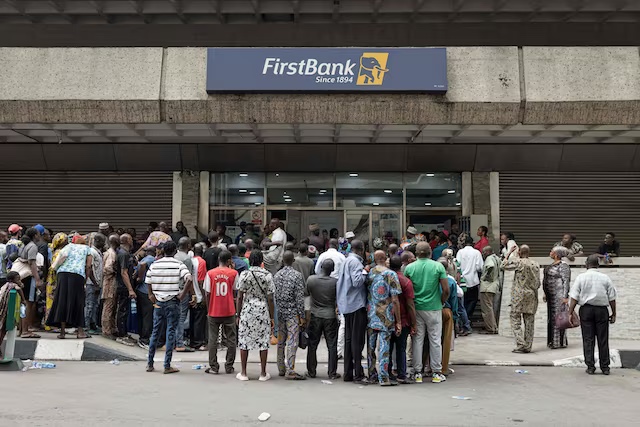The CBDCs have been criticized for presenting a significant risk to financial freedom, while offering no unique benefits to consumers.

Nigeria’s cash crisis has led to a string of protests against the country’s central bank digital currency (CBDC) and a call to restore paper money. The government’s attempt to push Nigerians towards a cashless economy by implementing CBDCs has been met with resistance.
Apparently, Nigerians are not too thrilled about the idea of going completely cashless and want their paper money back. Who can blame them? I mean, there’s something about the crisp, tangible feeling of cold, hard cash in your hands that just can’t be replaced by electronic transfers or digital wallets.
The country’s experience with the CBDC is a cautionary tale, indicating that the average citizen understands the substantial risk to financial freedom while receiving no unique benefit from the CBDC. Nicholas Anthony, a policy analyst in the Cato Institute’s Center for Monetary and Financial Alternatives, puts it perfectly: “CBDCs may be popular among central bankers, but money is ultimately a tool for the people.”
But why are people so hesitant to embrace this technological advancement? Well, for one, they’re concerned about the risks to financial privacy, financial freedom, and the stability of the banking system. When the U.S. Federal Reserve solicited comments on CBDCs, more than two-thirds of the commenters shared these concerns.
Let’s be real, CBDCs aren’t adding anything novel to the market in terms of benefits for consumers. Digital currencies are already widely available through debit cards, payment apps, and even prepaid cards. The low adoption rate in Nigeria, where less than 0.5% of Nigerians have used the CBDC, further supports this point. To put that number into perspective, more than 50% of Nigerians have used cryptocurrencies. Yes, you read that right – cryptocurrencies!

The Nigerian government has tried to spur adoption through various measures, but none have proven effective. It first removed access restrictions in August 2022, making bank accounts no longer required to use the CBDC. In October, it offered discounts if people used the CBDC to pay for cabs.
Unfortunately, Nigerians still preferred the cold hard cash, so the government took more drastic measures and restricted cash withdrawals to 100,000 naira ($225) per week for individuals and 500,000 naira ($1,123) for businesses in December.
To make matters worse, the Nigerian government decided to redesign the currency during this time, making it even more difficult for citizens to access their hard-earned cash. It’s a “move aimed at restoring the control of the Central Bank of Nigeria (CBN) over currency in circulation” and to “further deepen the push to [a] cashless economy,” according to a CBN press release. But, as the saying goes, you can’t legislate a change in behavior.
The Nigerian government thought it had set the stage for the CBDC to finally shine with the cash restrictions in place. However, it didn’t work. Nigerians took to social media to share their struggles with the cash restrictions, and rather than turning to the CBDC, they took to the streets to protest.
The Nigerian CBDC’s creators lauded the currency limits as a clever marketing strategy and predicted that other nations would follow suit. But in reality, Nigeria should serve as an eye opener for other countries trying to establish CBDCs.
Adapted from Coindesk